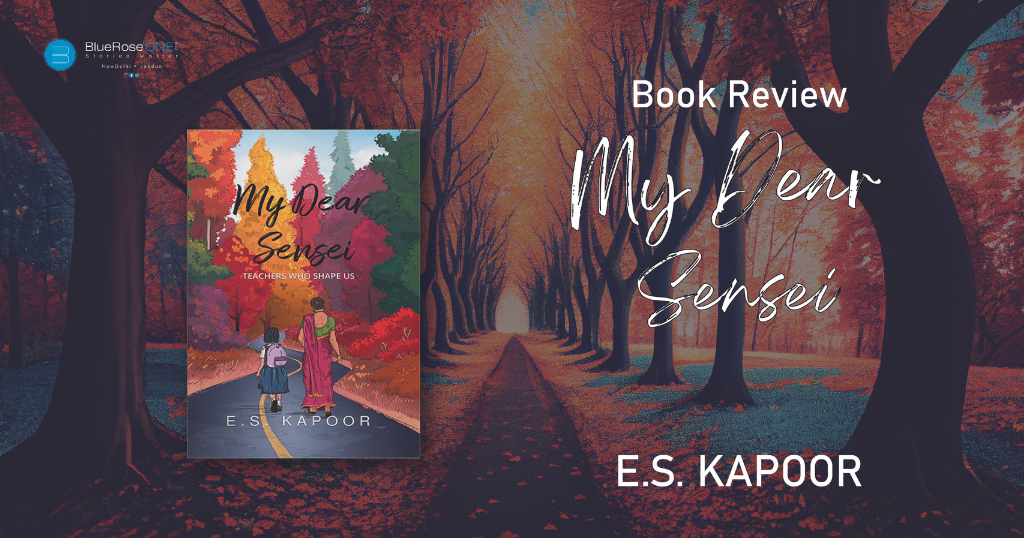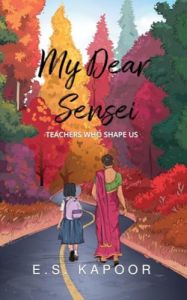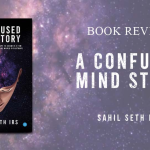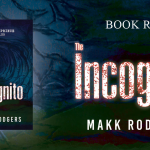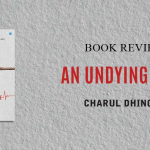Book – My Dear Sensei
Author – E.S. Kapoor
Blurb – “My Dear Sensei” by E.S. Kapoor is a mesmerizing literary mosaic that intertwines tales of education, resilience, and magic. Kapoor skillfully navigates post-Independence India, weaving historical events with personal narratives. The characters, from Simon to Pushpa Mahindra and Ms. Mayuri, embody the struggles and triumphs of educators. Kapoor’s prose, lyrical and evocative, transports readers to the heart of each story, addressing systemic issues within education. The book’s enchanting blend of history, social commentary, and magical realism creates an immersive experience. “My Dear Sensei” is a celebration of the transformative power of teaching, making it a captivating must-read.
Review – E.S. Kapoor’s “My Dear Sensei” is a literary mosaic that intricately weaves together tales of education, resilience, and a hint of the mystical. In a time where the role of educators is undergoing profound scrutiny, Kapoor’s collection of stories offers a poignant exploration of the lives of teachers in post-Independence India. Through a lens of curiosity, fascination, and a touch of magic, Kapoor crafts a narrative that not only captivates but also reflects the nuances of the human experience.
The book’s opening story, set against the backdrop of India’s lost War of Independence, introduces readers to Simon, a character whose relief at not leaving home takes an unexpected turn with the arrival of Mr. Rai, his first Indian teacher. Kapoor skillfully navigates historical events, infusing them with personal narratives that resonate on a universal level. This sets the tone for the entire collection, grounding the fantastical elements in the relatable and the human.
A standout in Kapoor’s storytelling is the character of Pushpa Mahindra, a government school teacher deprived of her salary for seven years. Kapoor delicately explores the resilience and determination of educators facing adversity, shedding light on the unspoken struggles of those committed to nurturing young minds. The portrayal of Pushpa Mahindra’s unwavering dedication is a testament to Kapoor’s ability to bring forth the often-overlooked narratives within the teaching profession.
Ms. Mayuri emerges as another compelling character, symbolising rebellion in her vibrant, rainbow-coloured saree. Kapoor skillfully delves into the complexities of individuality within the rigid structures of the educational system. Through Ms. Mayuri, the author addresses the importance of embracing uniqueness and challenging societal norms, creating a resonant commentary on the power of self-expression.
The narrative takes an unexpected turn with Mr. Bose, introducing an element of animal sorcery. Kapoor masterfully combines the ordinary and the extraordinary, blurring the lines between reality and magic. Mr. Bose’s teachings become a metaphor for the mystical aspects of learning, where the boundaries of conventional knowledge are transcended.
Beyond the enchanting stories, Kapoor’s work serves as a reflection on the current state of education and the challenges faced by teachers. The mention of a seven-year unpaid salary for Pushpa Mahindra serves as a poignant reminder of the systemic issues within the education system, raising awareness about the struggles that educators endure.
Kapoor’s prose is both lyrical and evocative, transporting readers to the heart of each story. The depth of her characters and the richness of the settings create an immersive experience, inviting readers to not only witness but also empathise with the challenges faced by teachers.
The thematic undercurrents of nostalgia, memory, and warmth resonate throughout the book. Kapoor effortlessly captures the essence of human connections formed within the realm of education. The emotional impact of these connections lingers, inviting readers to reflect on their own experiences with teachers who left an indelible mark on their lives.
As a reader, I found it challenging to put down “My Dear Sensei.” The seamless transitions between stories, coupled with the overarching theme of teaching as a noble and transformative endeavour, held my attention from start to finish. Kapoor’s ability to blend historical events, social commentary, and elements of magic into the fabric of teaching narratives is a testament to her storytelling prowess.
In conclusion, “My Dear Sensei” is a literary gem that stands out for its unique blend of historical context, social commentary, and magical realism. E.S. Kapoor’s storytelling transcends the boundaries of conventional narratives, offering readers a glimpse into the multifaceted world of teachers and the indomitable spirit that propels them forward. Through its vivid characters and enchanting tales, “My Dear Sensei” is not just a book; it is a celebration of the enduring magic that transpires within the sacred spaces of classrooms, making it a must-read for anyone who appreciates the art of teaching and storytelling.
Publish your book with BlueRoseONE and become a bestselling author. Don’t let your dream of becoming an author fade away, grab the opportunity now and publish your book – be it fiction, non fiction, poetry or more.

